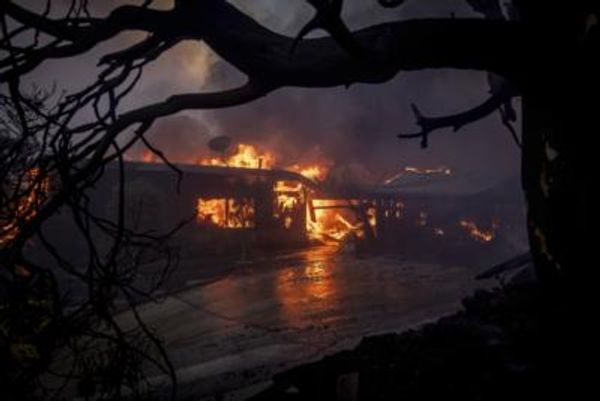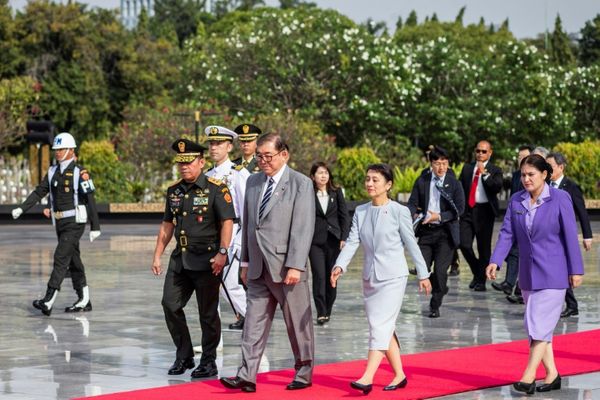
Talk about an October surprise. Sixty years ago this week, as the 1962 midterm elections approached, an American U2 spy plane captured photos that confirmed the Soviet Union was installing nuclear missiles in Cuba. So began a tense international showdown known as the Cuban missile crisis.
For 59 days the world teetered on the brink of annihilation as the two superpowers faced off. It was the closest we have come to nuclear war since the advent of the atomic age.
Last week US President Joe Biden invoked this memory when he warned the risk of nuclear war is greater now than at any time since the Cuban confrontation. He was speaking in response to thinly veiled threats by Russian President Vladimir Putin that he would “without doubt use all available means to protect Russia and our people — this is not a bluff”. Biden worried that detonation of a tactical nuclear weapon by Russia might easily spiral into “armageddon”.
After the Cuban crisis, the US and Soviet Union embarked upon a series of de-escalation and disarmament initiatives to prevent future disputes from spinning out of control. The first was the installation of the hotline between Washington DC and Moscow — a teleprinter at either end, not a red phone — that allowed direct communication between the two countries’ leaders.
In 1968 the Treaty on the Non-Proliferation of Nuclear Weapons (NPT) was introduced, committing nuclear-armed states to dismantle their stockpiles and other signatories to forsake adopting nuclear munitions. The following year the first bilateral arms reduction talks began leading to the Strategic Arms Limitation Treaty and the Anti-Ballistic Missile Treaty. These were followed by more comprehensive pacts between the US and the Soviets that resulted in the decommissioning of tens of thousands of warheads, missiles and bombers.
The end of the Cold War and the dissolution of the Soviet Union meant a potential nuclear nightmare receded from public consciousness, supplanted instead by fears of terrorist attacks. However, the genie was never put back in the bottle. The original nuclear powers have not fulfilled their NPT commitments to retire their nukes, and several more nations have since joined the atomic club. Only South Africa and, ironically, Ukraine have eliminated their nuclear arsenals.
It’s this complacency that Biden was addressing with his remarks. After living for decades under the shadow of the mushroom cloud, we have become inured to the ever-present danger that nuclear weapons pose.
Putin’s resort to nuclear blackmail is a rash attempt to stem the battlefield corrosion of Russia’s military and forestall a humiliating defeat. This does not mean a nuclear strike is imminent, or even likely. Exploding a tactical nuclear device would not alter the strategic calculus for Ukraine or the West. Ukraine is locked in an existential war. Its people have no option but to fight. A nuclear explosion would redouble its allies’ commitment to that cause.
Diplomatic efforts would further isolate Russia from the global economy, placing more pressure on the regime to end its invasion. Joseph Cirincione, nuclear security expert and former president of the Ploughshares Fund, outlined additional measures that could be imposed, including expulsion from the international banking system, a worldwide ban on all Russian energy exports, a cyber shutdown of Russia’s electrical grid that would turn Moscow dark, and the prospect of legal repercussions for senior officials responsible for implementing Putin’s order.
Moreover, the West might retaliate with a massive NATO-led conventional counterstrike to cripple Russia’s forces on Ukrainian territory. The domino effects such a response would elicit are uncertain at best.
The mere suggestion of Putin using a tactical nuclear weapon is intended to erode the taboo against first use and normalise the notion of “limited” application on the battlefield. There is nothing limited about a tactical nuclear weapon. Depending on its explosive power, even a small warhead could rival the “Little Boy” bomb that flattened Hiroshima and vaporised 100,000 people in an instant. John Hersey’s classic Hiroshima is a timeless record of the true horror that blast unleashed.
Despite his sabre-rattling, Putin remains savvy enough to understand the risks should he cross the nuclear Rubicon. This is another reason for Biden’s public comments. Along with back-channel diplomacy detailing the consequences such a choice would bring to Putin’s doorstep, they are intended to deter him from pressing the button.
Notwithstanding that it would be a catastrophic mistake, we can’t exclude the possibility that Putin may do it anyway. It wouldn’t be his first flub. He blundered into the Ukraine invasion with foolhardy swagger, only to discover that his military’s vaunted prowess was as illusory as Potemkin’s villages. That disaster has boomeranged to doom his vision of a reconstituted Greater Russia, and threaten his grip on power at home.
Desperate men are prone to desperate measures. Having backed himself into a corner, Putin has no good options to recover his footing. He has told us he isn’t bluffing. Prudence dictates that we should take him at his word, and prepare for the worst.
Do you think Putin is crazy enough to press the nuclear button? Let us know by writing to letters@crikey.com.au. Please include your full name to be considered for publication. We reserve the right to edit for length and clarity.







